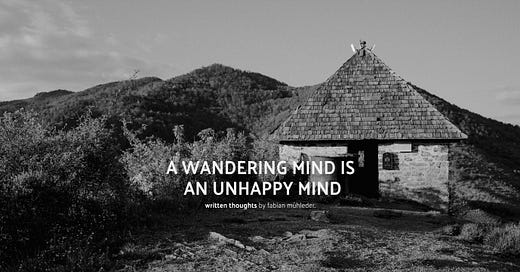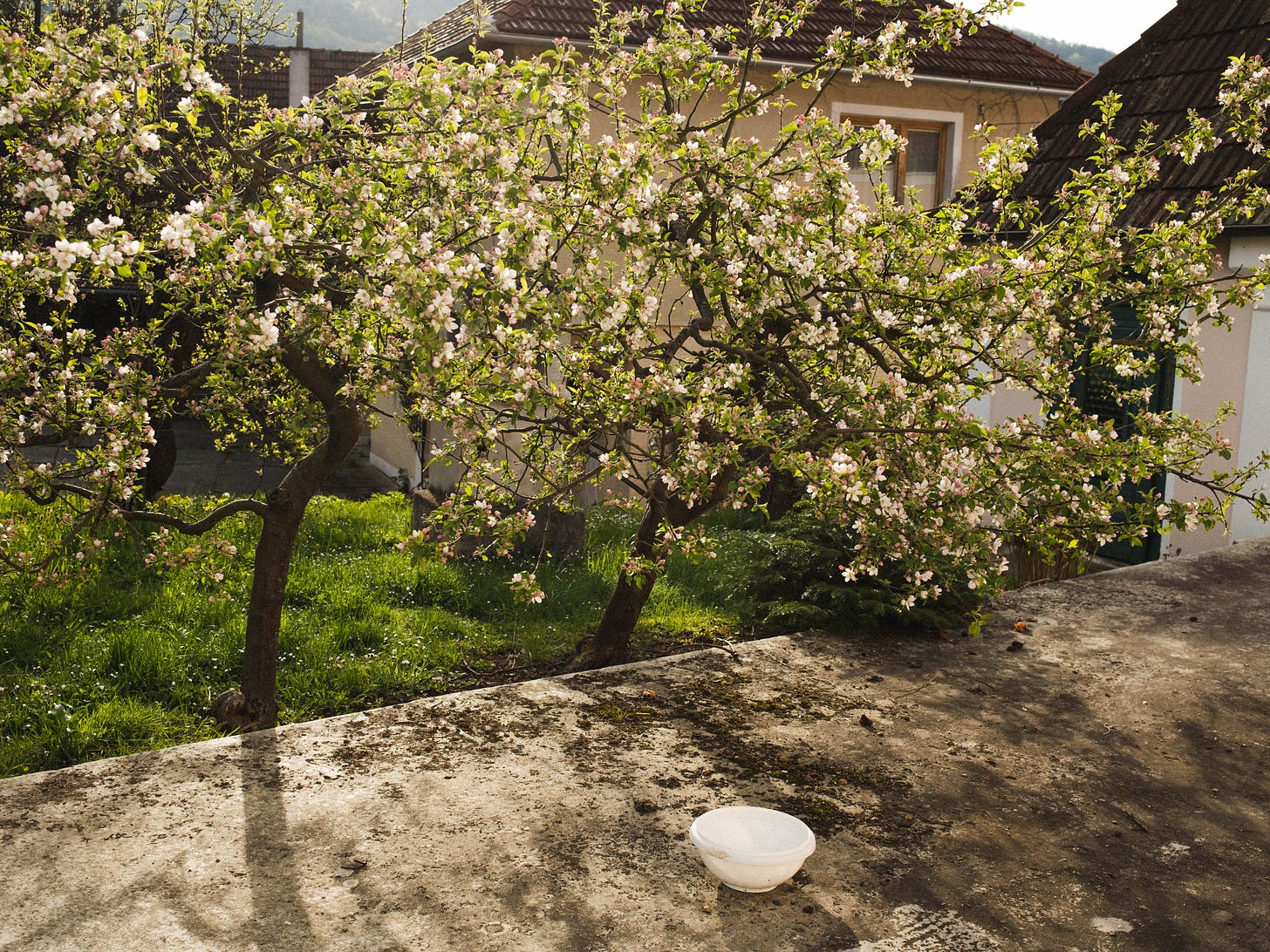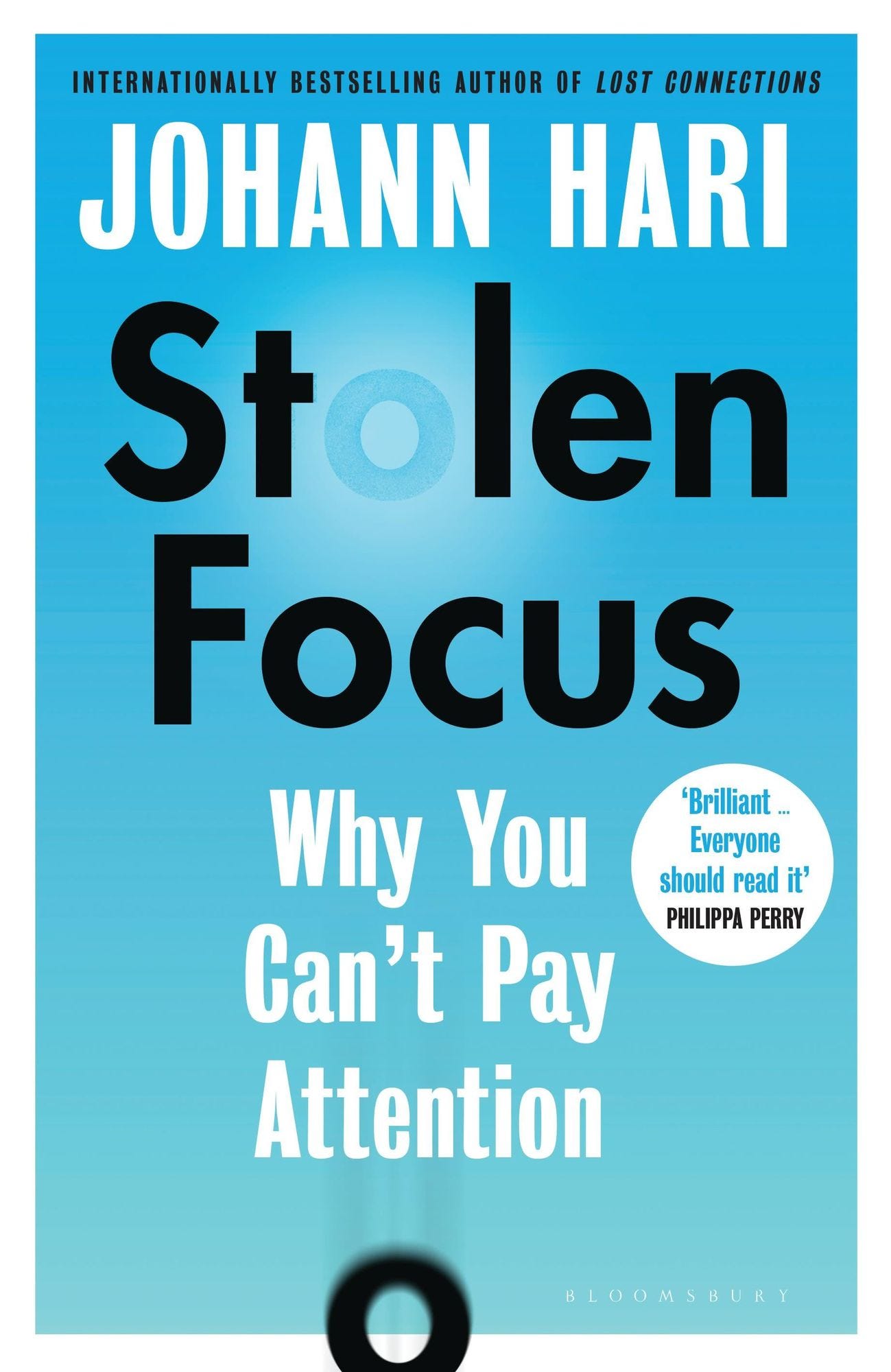010 — More Photos: A wandering Mind is an unhappy Mind
social media, mind-wandering, future projects and a family trip
Dear Friends,
I hope you feel well, and enjoy how beautiful the plants bloom these days. It’s a dream!
Before I share what the title of this post is about, I’ll start with some personal housekeeping.
Housekeeping and a Family Trip
The last month was basically full of pre-production work for some upcoming projects, I’m very excited about. A personal project which should express my joy about cycling and sports overall will be shot by me this weekend and shown to you in one of the upcoming newsletter posts.
Also, I’ll be part of this year’s Innsbruck Alpine Trailrun Festival (IATF) followed by the World Mountain and Trail Running Championships (WMTRC) as a freelance photographer in the first week of June. I’m so excited about everything I have planned for these events, and already super grateful for all the opportunities and the trust given to me!
As I’ve already talked about in Show your Work, it’s so important to show the work we as artists make. So I’m excited to show the finished projects to you soon.
Next, I wanted to share some recent photographs I made along a family trip with my trusty Fujifilm x100V. It was nice to be out with the whole family for a few days, as this becomes rare with everyone getting older and finding their own way.
Stolen Focus - Why You Can’t Pay Attention
— by Johann Hari
This book was recommended to me by
from . Thank you, Matthew!Do you find yourself mind-wandering (how we call our brain’s activity when it’s not fully present with a current task) when actually you “should” be focused?
Is it hard for you to focus on one thing for a long time?
While this can be a result of our social media world (how we consume) and how these platforms (Instagram & Co.) were designed. Mind-wandering is actually very important, but we mostly blame ourselves for doing it. Why?
The Problem with these Platforms
Most social media platforms are generally free to use. But what it does cost us, is our attention and our identity (who we are, what we are interested in, how we think, … EVERYTHING) which we provide them at our fullest. They make money by the time we spend scrolling and are designed to keep our attention by showing content, the platform thinks (based on the activities they track and collect) catches our attention. If we are not on their platform, they try to distract us by sending notifications, to again get our attention.
Distraction. Also, a huge problem, mostly caused by our phones. Please check your notification settings — They are your friend.
Social media learned us a new way of consuming content. Through it, we lost our ability to focus on one topic for a long time, instead, we have been trained to keep our attention on a topic only for a very short period before we move to the next one.
Having us clued to the screens is not very social (maybe I understood something wrong). Companies like Facebook know about possible changes to their platform, to really provide value to people, but these changes would lead to less time being spent on their platform = Less Money = No, thanks.
There are other solutions out their how these platforms could be financed (more on this in the book), which would open many doors to redesign functionality.
No Mind-Wandering, no Creativity
I want you to read just two sections of this book about mind-wandering to get you on the same page.
Johann interviewed many different people in the course of his research, including scientists, ex-Silicon Valley designers/strategists, professors, and more. Two Harvard scientists developed a web app to track how people feel when they do all sorts of everyday things.
The outcome:
In general, when people are mind-wandering in our culture, they rank themselves as less happy than when they are doing almost any other activity. Even housework, for example, is associated with higher levels of happiness. They conclude: ‘A wandering mind is an unhappy mind.‘
— Johann Hari in "Lost Focus"
He also interviewed professors in neurology and psychology who found out that mind-wandering in relaxed situations is an essential activity.
Jonathan Smallwood on the positive effects of mind-wandering:
The more you let your mind wander, the better you are at having organized personal goals, being creative, and make patient, long-term decisions. You will be able to do these things better if you let your mind drift, and slowly, unconsciously, make sense of your life.
Secondly, when your mind wanders, it starts to make new connections between things - which often produces a solution to your problems.— Professor Jonathan Smallwood in "Lost Focus"
To conclude all this, I wanted to share what I could already take away from this awesome book. Mind-wandering is nothing you have to blame yourself. It is necessary to be creative and has many other positive impacts on your life. I’m once again shocked about how social media is influencing our lives and the way our brain works.
Think about how you can reduce the number of times you get distracted by modern technologies, and please consider reading this book by yourself — you will benefit from it, for sure (I’ve ordered another 5 printed copies to give away as presents).
All the best,
Fabian
The best places to follow me and my work are my website or the written thoughts Newsletter.













